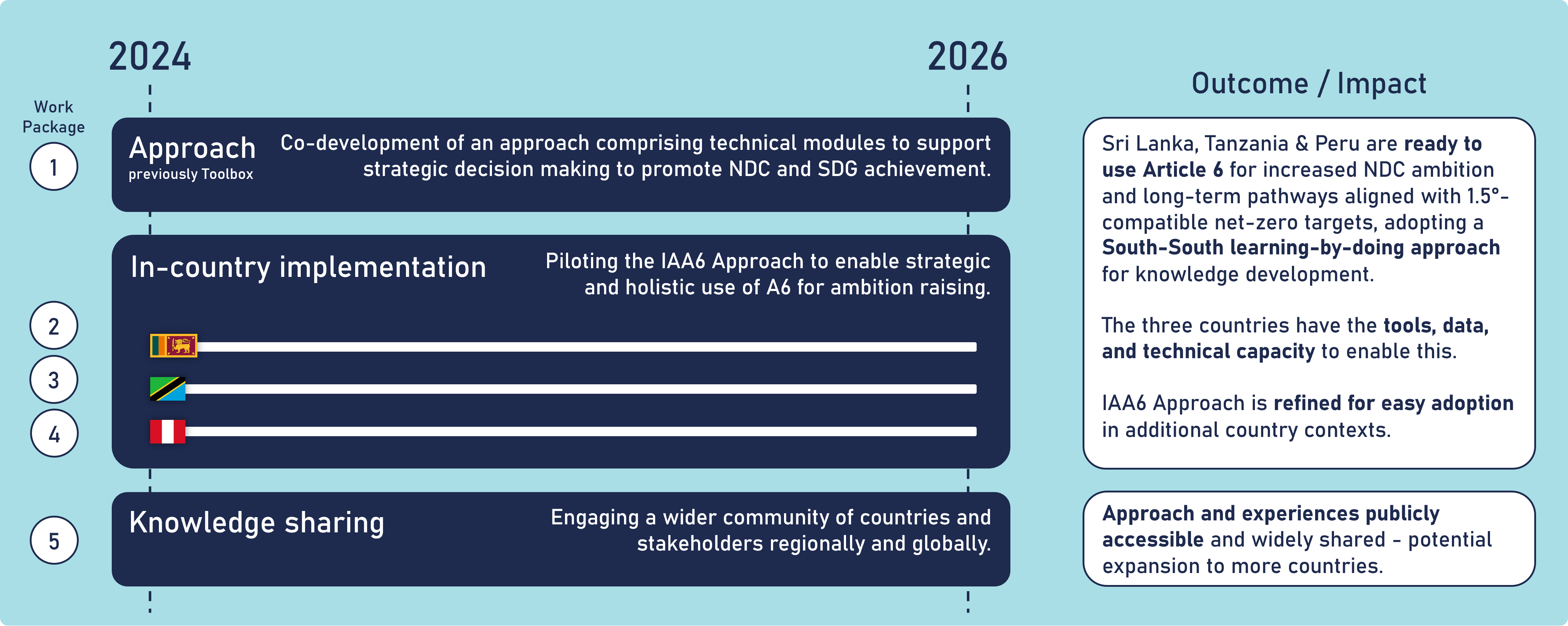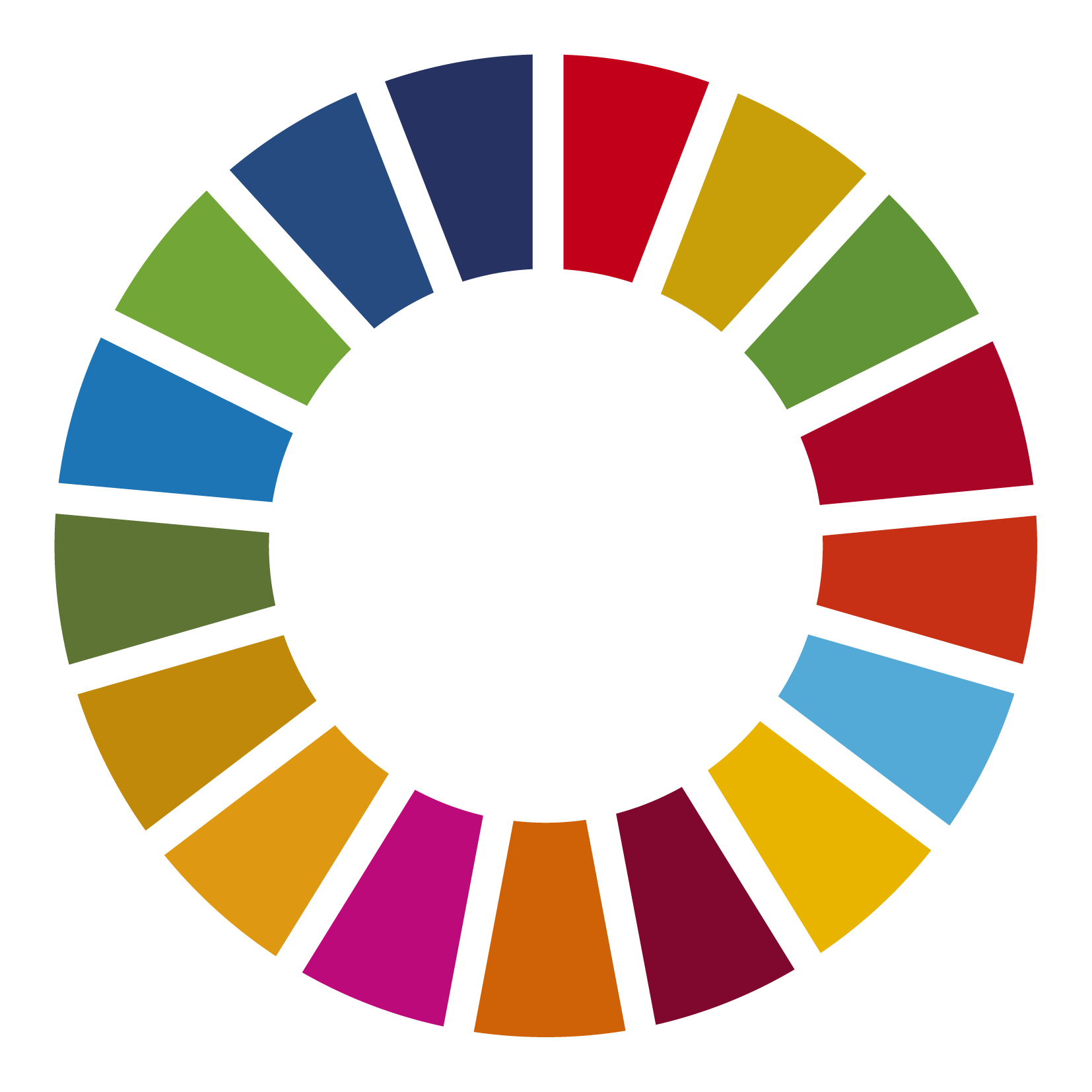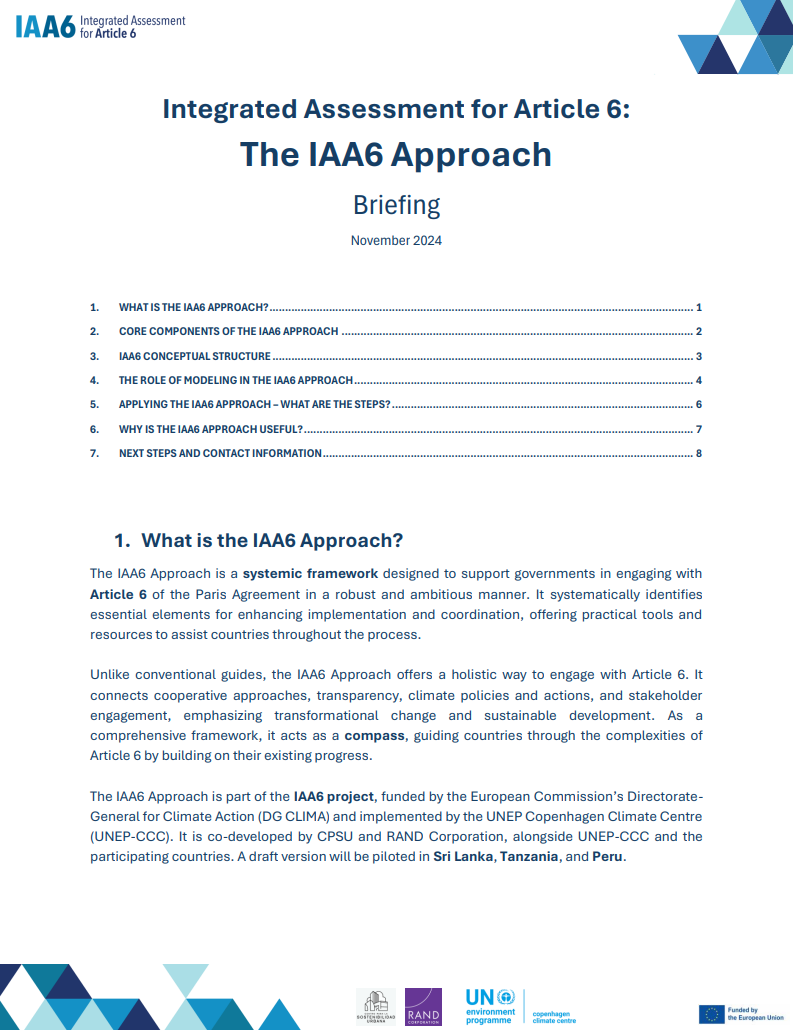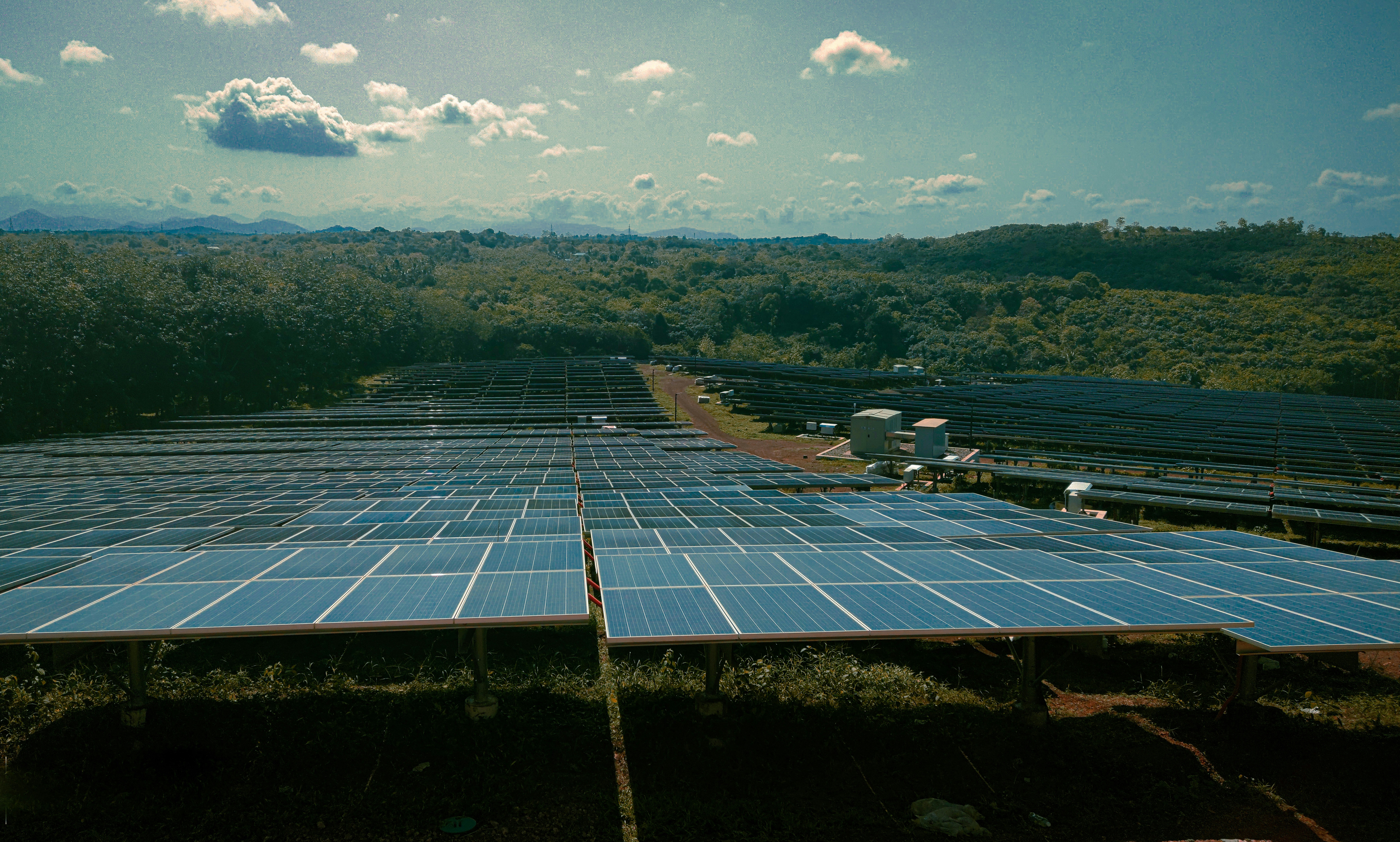Carbon markets have the potential to facilitate more ambitious climate action through cost-savings and targeted channeling of financial resources. However, countries are lacking the technical capacities to easily assess how Article 6 can be aligned with a broad set of goals. This includes climate and development priorities as well as avoiding any environmental and social harm.
To develop the required knowledge and capacity, the European Commission’s Directorate-General for Climate Action (DG CLIMA) is funding the Integrated Assessment for Article 6 (IAA6) Project.
The project adopts South-South cooperation for the iterative co-development of an integrated assessment approach to Article 6 (the IAA6 Approach) to enable evidence-based policy making and implementation of Article 6 carbon markets in Peru, Sri Lanka and Tanzania.
Utilizing this approach, the project supports countries in analyzing and planning for domestic mitigation strategies with Article 6 cooperation that align with the NDCs, SDGs, and the long-term goals of the Paris Agreement.
The project aims to catalyze broader deployment of the IAA6 Approach regionally and globally. By building on existing progress and adapting to the specific country context, applying the Approach is valuable even if Article 6 is not widely used after the assessment. Implementing Article 6 can help facilitate additional finance flows from high- to lower-income countries. But either way, building on proven concepts and without requiring much additional effort, the Approach will help fill identified gaps (e.g. climate data management or domestic policy planning) to enhance decision making.
Project activities and impacts:
- Developing an approach for integrated assessment to devise and implement countries’ Article 6 strategies (IAA6 Approach). This builds on Costa Rica’s experiences and the SiSePuede open-source modelling framework, among other publicly available resources, drawing on standardized data structures. The approach is a practical framework to build capacities and enable comprehensive implementation of Article 6 by providing access to tools and guidance material.
- Working with Peru, Tanzania and Sri Lanka to co-develop and pilot the IAA6 Approach. The project will engage with key stakeholders in all three countries to identify needs, gather contextual information and data, and define how to best structure the implementation process. Afterwards, components will be collaboratively refined to suit the country-specific requirements. This will help to continuously improve the approach and ensure its context-sensitivity. Specific outcomes from the implementation process may include the utilization of international open-source data to develop local climate action models and modelling capacities. Another example is the design of advanced procedures for holistic climate policy co-creation.
- Facilitating regional and global knowledge sharing, communication, and outreach. The project will publicly share tools and country activities, socialize lessons learned (at regional and global UNFCCC events), and conduct a needs assessment for a wider deployment.
The development of the IAA6 Approach complements existing UNEP Copenhagen Climate Centre initiatives on capacity building and analysis for Article 6 implementation. This includes the analysis of carbon market developments (Pipelines for the Clean Development Mechanism (CDM) and Article 6), impact assessment tools for sustainable development (Sustainable Development Initiative for Article 6) and transformational change as part of the Initiative for Climate Action Transparency (ICAT), as well as piloting of Article 6 activities, such as the Supporting Preparedness for Article 6 Cooperation (SPAR6C) project.
The final version of the IAA6 Approach, incorporating lessons learned from country applications, will be made available and will be linked here. Update: This new briefing introduces the Approach, its main components, and how it is useful for countries.
At COP29 in Baku, IAA6 joined other stakeholders to highlight the need to mobilize finance for effective climate action implementation. Watch Martin Hession, negotiator for international carbon markets for the European Commission and Vice-Chair of the Article 6.4 Supervisory Body, summarize the event and IAA6 Approach here:
IAA6 is steered by a project coordination committee composed of representatives from the European Commission, UNEP, UNOPS, and UNEP-CCC. It is implemented by UNEP Copenhagen Climate Centre, jointly with selected implementation partners from the Global South.
This page was created and maintained with the financial support of the European Union. Its contents are the sole responsibility of UNEP Copenhagen Climate Centre and do not necessarily reflect the views of the European Union.






